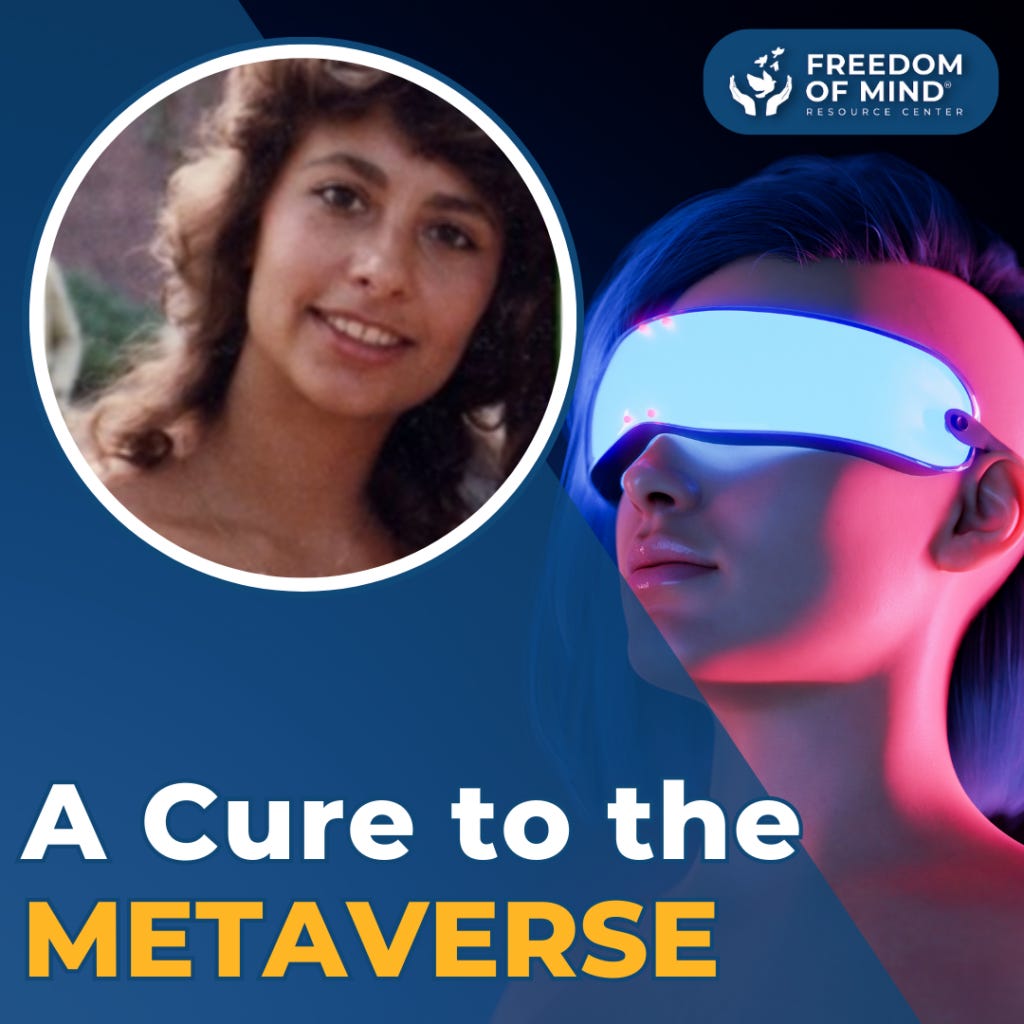A Cure to the Metaverse: Relational Maturity- Aureet Bar-Yam Hassan’s Developmental Theory
The Digital Universe: A Blessing and a Curse
The Internet and social media have the potential to serve as a uniting force and are tools that can be used in positive ways. During the ongoing COVID-19 crisis the Internet has been a vital way to continue working and learning and maintaining at least a minimum of social contact, which is vital to the emotion…
Keep reading with a 7-day free trial
Subscribe to Dr. Steven Hassan to keep reading this post and get 7 days of free access to the full post archives.





